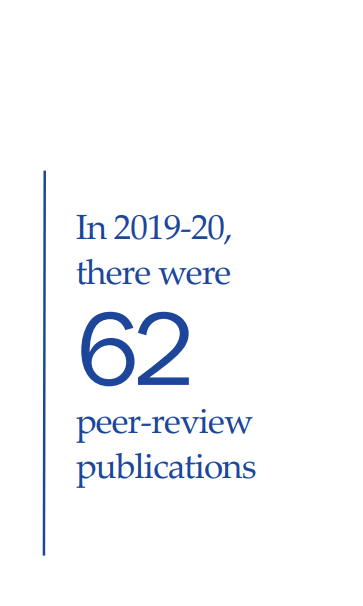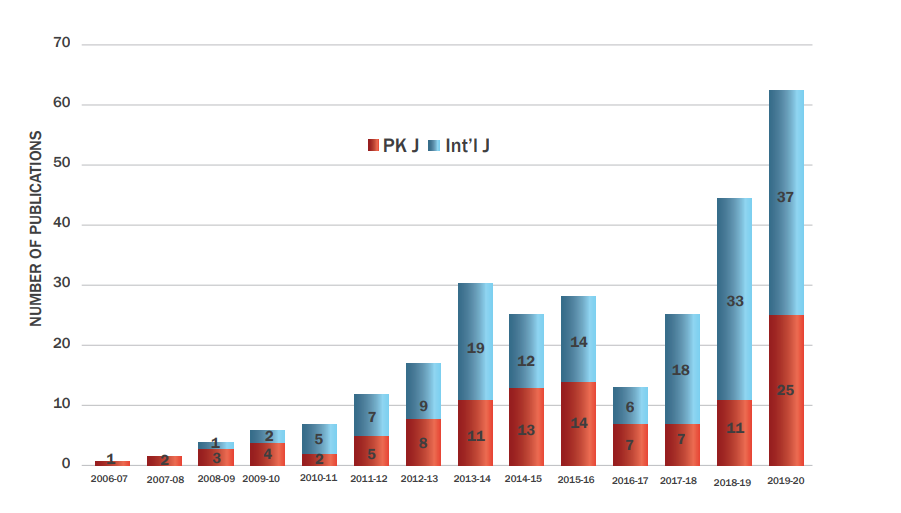Indus Hospital Research Center
Indus Hospital Research Center (IHRC) has been functioning as an essential hub for research-related activities to promote, support, and guide the Network’s diverse research interests. While promoting research, IHRC strives to foster a scientifically robust and ethically sound research environment.
IHRC was originally established in 2008 at the Korangi campus and was managed by Interactive Research & Development (IRD) until 2016. In partnership with IRD, several public health initiatives were established and launched. In 2017, IHRC was completely handed over to Indus’ Medical Directorate and its larger established community-based public health initiatives such as TB, Malaria, and Diabetes were transitioned to the public health and community engagement arm of IHN, the Global Health Directorate (GHD). Since this transition, the IHRC’s primary focus has been clinician-driven research and the incubator for public health programs that are not yet ready to scale-up. The IHRC also plays a role in supporting the research of the PGME trainees. In May 2020, IHRC was moved from the Medical Directorate to the Academic Directorate. IHRC provides research consultancy and support to 160 IHN clinical faculty in 38 specialties and 180 postgraduate medical trainees. During 2019-20, IHRC assisted with approximately 175 research proposals: 88 faculty research, 46 residents, 40 other IHN employees.
It ran 148 active research projects, recruited 26,048 study participants and analyzed 72 studies. By the end of this fiscal year, 197 projects were running in the Research Electronic Data Capture (REDCap) out of which 113 researches, 42 are operational support, 33 are quality improvement and 9 others.
IHRC has also conducted multiple research programs and is developing an online video library for research resources. It also provides recorded lectures to clinicians, non-clinicians, and researchers.
IHRC Sponsored Research
WHO’s Solidarity Trial
The IHRC and Infectious Disease teams are part of the Solidarity Trial, which is a WHO supported “Multinational Multi-Center Randomized Controlled Trial” looking at treatment modalities for severe COVID-19 disease in hospitalized patients. 39 countries have approval for patient recruitment, and it has started in 29 countries.
IHRC is supporting the trial by providing coordination between Center Lead and study team, maintaining patient logs, institutional review board submissions, site-specific protocol development and documentation, randomization and follow-up with recruited patients.
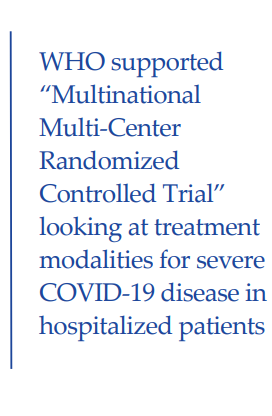
Verocell Trial
This multi-arm trial is now in the analysis phase and its results will provide information on the
efficacy of a Chinese anti-rabies vaccine (Verocell). It is a joint study between the Infectious Disease Department and IHRC. It was conducted on healthy participants to assess antibody titer buildup and to report any side-effects. The impact of the study findings will possibly provide evidence that shortens the number of doses to accelerate the treatment regimen. The lab aspect of this study was done in collaboration with the Biology Department, School of Science and Engineering, Lahore University of Management Sciences.
Improve ER conditions of hospitals in Pakistan using Behavioral Sciences Approach
In 2019, IHRC received a research grant in collaboration with Policy Analytics, a Swiss health
research company, and funded by the International Committee of Red Cross. It is a multi-site study with one site at the Hayatabad Medical Complex in Peshawar and one at The Indus Hospital, Karachi. The study aims to identify the main drivers of violence against healthcare providers in emergency and to design and test behavioral interventions to reduce violence by hospital staff, patients, and attendants in the Emergency Department. The sites were selected based on the high patient volume in the ER and willingness by the administration to collaborate.
HALO Trial
In collaboration with the University of Manitoba, a sepsis trial is planned with the Infectious Disease and IHRC at The Indus Hospital, Korangi Campus. National Bioethics approval and Drug Regulatory Authority of Pakistan (DRAP) approvals were sought during 2019-2020. The international team has planned visits to Pakistan twice for site initiation. The trial is ready to begin enrollment in Pakistan once the COVID-19 pandemic is under control.
IHRC Programs’ and Supportive Projects
Rabies Free Pakistan (RFP)
In response to the growing concerns about dog bite cases in the country and the culling of dogs, the ‘Rabies-Free Karachi’ pilot project was initiated in 2018. After achieving success in the pilot phase, the initiative was scaled up to cover all of Karachi. From July 1, 2019 – Jun 30 2020, RFP team vaccinated 7,638 street dogs against Rabies and sterilized 1,773 dogs across Karachi.
In 2019-20, “Rabies Free Karachi” became “Rabies Free Pakistan” in order to gradually increase its services to a national level. In 2019, The Indus Hospital signed an MoU with Getz Pharma Private Limited to work towards the eradication of rabies by 2030. It includes operational, marketing, and research support.
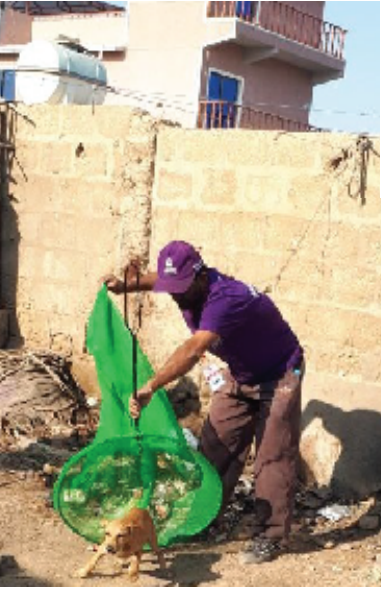
To support the initiative, Nissan Gandhara Motors came forward to donate the first mobile animal sterilization unit. In the surgical unit, 24 surgeries can be performed daily to sterilize stray dogs. This service is also extended to the community free of cost. The surgical van is fully furbished with two surgical tables, a washing area, and all essential surgical consumables. The RFP team also provided training to local government participants for dog catching and vaccination.

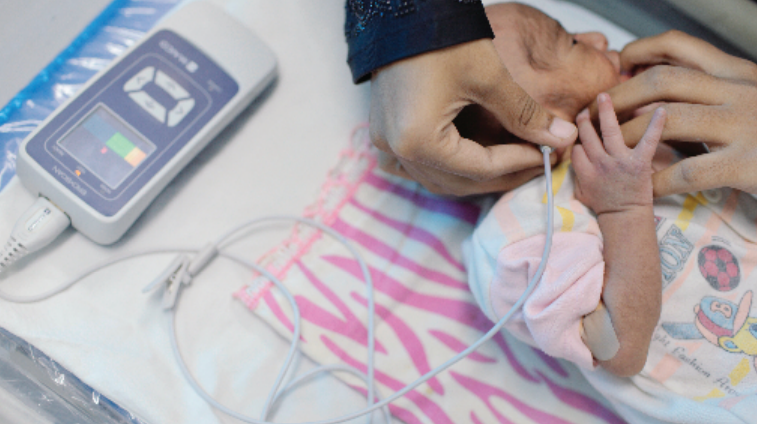
Neonatology Hearing Screening Program at Sheikh Saeed Memorial Hospital
The IHRC program team assisted the audiology department in restructuring the neonatal hearing program at Sheikh Saeed Memorial campus for timely referrals. Now those neonates who fail to pass screening tests are scheduled for Brain Stem Evoked Response Audiometry testing on the same day. This ensures correct and early treatment and diagnosis of hearing problems. The children with severe to profound loss are referred to the Cochlear Implant Program for early intervention.
Process Improvements for Early Discharge from Wards
Internal Medicine, Emergency Department, and IHRC teams are working together to bring efficiencies in the ward discharges. This is done to improve the discharge process which would translate into higher bed availability in the ward.
Support to Value Based Health Care Group (VBHC)
IHRC is providing support to the VBHC group working at the entire IHN level. The VBHC core team and the administrative and clinical staff at Sheikh Saeed Memorial campus are working closely to apply the concept of VBHC to develop process maps for complex patient pathways, reassess the clinical data and find ways to bring further efficiencies to the processes at SSMC. The group hopes to identify glitches and then provide recommendations to streamline systems. The ultimate goal is to reduce costs, minimize wastage, and provide patients with a patient-centric experience.
IHRC Sponsored Research
IHRC has a large role in ensuring that the research conducted at Indus is not only ethical but has scientific merit and quality, which is reflected in the increasing publications in peer-reviewed international journals. Nearly 52% of IHN’s total publications occurred in the past four years after IHRC’s management was taken over by Indus. In 2019-20, there were 62 peer-review publications including international journals such as the Archives of Disease in Childhood, the BMC Health Services Research, the BMC Musculoskeletal Disorders, the Clinical Infectious Disease, the Lancet Respiratory Medicine, the Pediatric Blood and the World Journal of Surgery
ICON 2020 publication
IHRC also played a key role by rendering administrative, technical and scientific support to 69 submitted papers and 30 abstracts for scientific and administrative review of the supplement.
